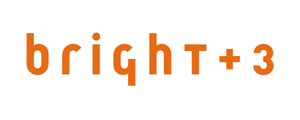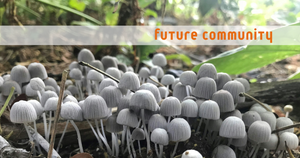If you work in or with nonprofits, news, and community organizations you likely have a sense for the value of adaptation, diversity, and interdependence. These organizations exist not just to serve the interests of citizens, neighbors, or residents. They also depend on people for financial support, volunteer support, guidance, and awareness.
A broader range of support means more resilience and probably more revenue. An ability to learn, measure and evolve helps maintain relevance and an ability to meet the needs of changing communities. Collaborations and partnerships bring new ideas, resilience, and an ability to get more done.
Yet, in this time of extreme upheaval, change, and quite literal threats to nonprofit, news and community organizations, I'm not sure we've positioned our organizations to be as open, diverse, and adaptable as they need to be.
Learning from microbes
I've been reading Rob Dunn’s 2021 book, A Natural History of the Future: What the Laws of Biology Tell Us about the Destiny of the Human Species. Dunn is a professor of applied ecology at North Carolina State University. In the book, Dunn takes us on a tour of research in biology, microbiology, agriculture, migration, economics, sociology, political science and few other field. He's telling the story of how humans evolved their circumstances (and bodies and minds) to thrive in a world full of biological threats.
The value of diversity and open, adaptive ecosystems comes up again and again. In part because modern human life (the last couple thousand years) has largely been a project of isolating us from or beating back natural ecosystems and their biology.
Life, in the broad sense, thrives (and simply survives) when it has diverse food sources, collaborative organisms, and evolutionary options. In other words, we do well when we have multiple forms of protection and sustenance, partners in crime, and adaptation routes.
Microbes, including bacteria and parasites, thrive by learning quickly, adapting to their environment, finding new sources of food, and partnering with other creatures–often by exchanging valuable services.
Dunn's stories of biology, particularly microbiology, don't tell an encouraging story about how our broader economic and political systems are supporting diversity and open ecosystems.
We’re a species that uses science to extract itself from the natural processes that, by and large, kill us. And we’ve been pretty good at it. Go us!
But too good, perhaps, especially in a time of climate change and the biological and political change it brings.
There are littler and more directly applicable lessons here for those of us working in nonprofit advocacy, community building, and news.
🪲 Specialization is great. Until it’s not. 🐝
Humans, at least those with money and access to science, have been able to optimize the special ecological niche we need to thrive. We have antibiotics, chemical water treatment, agricultural pesticides and herbicides, and the ability to grow mass amounts of animal protein in small spaces. We’ve specialized our living conditions.
But the fight is constant. And it’s constantly pushing us into smaller conditions for living that are further and further removed from nature. Meanwhile, nature is rapidly evolving new ways to get us.
Specialization makes us strong. Until it doesn’t. SIDENOTE: massive disinvestment in science seems unhelpful here.
Our organizations are similar. We can and have professionalized the work of advocacy, organizing, campaigning, fundraising, communications, marketing, and branding. We can be design and develop multi-channel AI assisted and data driven marketing campaigns that increase public awareness by 4.35%.
But often it seems like the public, even the people in the communities and towns and states in which we work, have moved on. Fewer people give, join, and respond. We churn through lists of names.
Perhaps by constantly specializing we’ve lost connection with the community
.🐜 Diverse environments help species evolve, adapt and be more resilient (aka they protect us from extinction) 🐒
This has all sorts of implications for immigration, economic and climate policy. But set that aside for a moment.
To varying degrees we’ve internally diversified our organizations and their staff and boards. This is good.
But I’d argue that we’ve made our knowledge, learning, and capacity far less diverse by moving away from meaningful roles for members, supporters, volunteers, readers, and other community members.
As a result we’re slower to respond to changes, learn, and experiment. We're less adaptable and able to draw on differing community strengths in a crisis.
We need ways to inject more ideas and experience into our organization. We need more emotional and informational inputs. Diversity is not just internal.
The strength of diversity happens when it provides meaningful roles for for a wide range of people, skills, and experiences.
The upside here is that most nonprofit organizations have the capacity to open up to diverse inputs (aka community events, training, leadership roles, volunteering) and evolve their communications, programming, fundraising and more to thrive through such opening.
What they don't have are the systems, habits, and institutional support (from donors, funders, consultants and other strong influencers) to operate in these open forms.
Biology tells us that the organizations most likely to survive, even thrive, in a rapidly changing environment have meaningful relationships with a diverse group of other organizations and people. They support each other. They learn and adapt. They grow the capacity to expand their niche and add value to new situations.
Opening up to community will make this learning, adaptation, and partnership far more successful.

